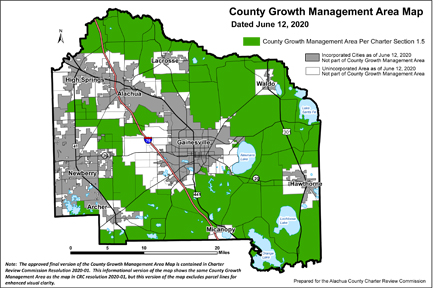HIGH SPRINGS – The High Springs City Commission on Sept. 21 set its upcoming 2020-21 Fiscal Year budget at $12,694,030. Although Commissioners previously met several times in budget workshops over the summer, the budget did not fly through the approval process easily on first reading, which was Sept. 10.
During the first meeting Finance Director Jennifer Stull listed some items she termed “housekeeping items” that she thought should be clarified prior to final consideration of the budget.
A main concern brought up by Commissioner Scott Jamison during the first meeting had to do with one water meter reader whose salary fell under the Water Department, but who was actually supervised by the Utility Billing Department. “It doesn’t seem logical to me that a person whose work is in one department should be supervised by someone in another department,” said Jamison.
City Manager Joel DeCoursey, Jr. and Stull both explained the reasoning in allocating funds and supervision. As Commissioners discussed the matter and attempted to take a vote on approval of the budget, it became apparent that the budget might not pass during first reading of the related ordinance. However, it did pass unanimously with the caveat that Stull would contact the City’s auditors to verify that a change could be made to satisfy the issue.
On Sept. 21, Stull reported that the auditors recommended that the meter reader be moved to License and Billing.
Commissioner Nancy Lavin made the motion to approve the final budget, which was seconded by Commissioner Gloria James and passed unanimously
In related business, the Commission finalized the rate of taxation on real and personal property for the 2020-21 fiscal year. In both cases, the millage rate was fixed at 5.8800 mills, which is a 3.84 percent increase from the current rolled-back rate of 5.6628 mills.
Commissioner Scott Jamison made it a point to mention that this is the same rate that the City set last year.
Previously, the City conducted budget workshops to discuss the budget and the tentative millage rate. Approval of Resolution 2020-H on Sept. 10 and Resolution 2020-J on Sept. 21 finalized discussions held during those workshops.
This rate will be levied by the City of High Springs for the upcoming fiscal year on all non-exempt taxable property within the City limits.
In other business, the City Commission backtracked on moving funds to Florida Trust by rescinding Resolution 2018-BB. The action was a follow up to comments by Commissioner Nancy Lavin at an Aug. 20 workshop in which she pointed out that funds which Commissioners voted to move to Florida Trust were not moved.
Finance Director Jennifer Stull said that it is the bond reserve payment money. She said that management at the time decided not to move the money because the local bank said they would match the rate the City could get from Florida Trust. It was decided during the workshop that the issue should be brought up at a Commission meeting.
At the Sept. 21 meeting, Lavin said she was concerned that the Commission had voted to move the funds, passed a resolution and the funds had not been moved. Some commissioners were dismayed that the directive had not been acted upon as well. Commissioner Scott Jamison said there was nothing that could be done about what had happened, but he wanted to know what action they should take now.
The city attorney advised that Commissioners could rescind the original resolution and ask staff to research the issue at this time, since interest rates may have changed since the earlier decision.
Commissioners unanimously voted to rescind the earlier resolution and asked that the issue be placed on the next City Commission meeting so a decision could be made at that time.
Commissioners asked that the City Manager and Finance Director work to obtain information for the next meeting.
# # #
Email cwalker@
alachuatoday.com
Add a comment

